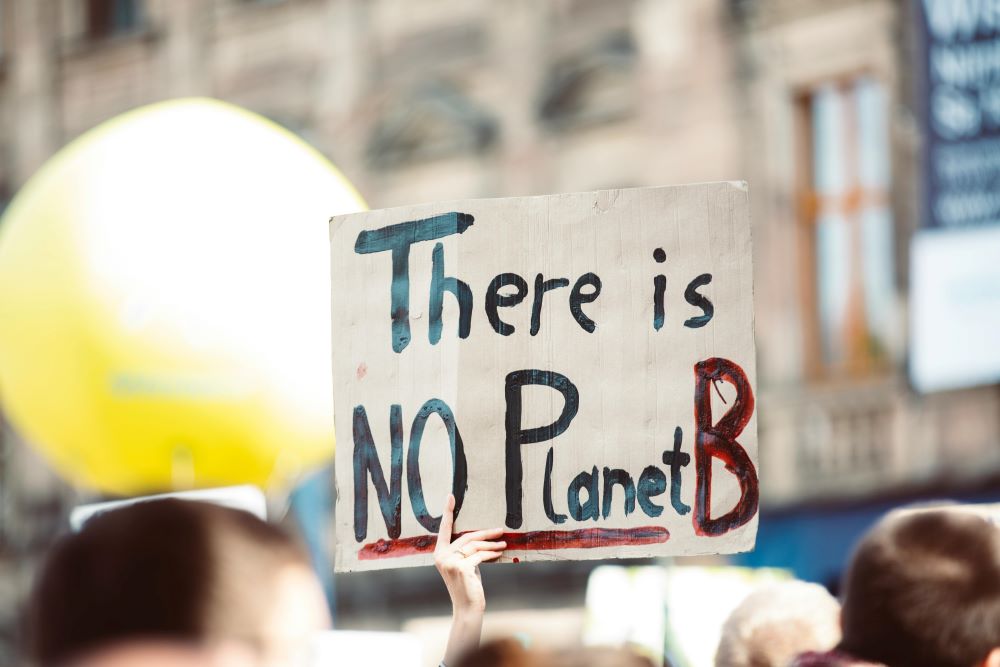Environmental issues can have just as intense of an effect on one’s mental well-being as their physical health.
As environmental conditions become increasingly unstable, more people are finding themselves affected not only by the physical implications of climate change but also the psychological effects. Climate change has already increased the frequency and severity of extreme weather events like hurricanes, floods, and wildfires, leaving communities having to deal with the devastation of losing homes, livelihoods, and loved ones. For example, recent hurricanes in the southeastern United States, such as Hurricane Helene, have resulted in not only severe physical damage but also a widespread emotional toll on survivors, many of whom suffer from anxiety, depression, and even post-traumatic stress disorder (PTSD).
Climate-related disasters bring unique psychological challenges that are often made worse by displacement, financial strain, and the loss of social support. The immediate aftermath of these events leaves individuals overwhelmed as they struggle to adjust. The anxiety associated with sudden displacement and the uncertainty of rebuilding, along with memories of the trauma, frequently lead to long-term mental health effects. Studies have shown that individuals exposed to these kinds of stressors are at increased risk for mental health disorders. Survivors often face extended emotional recovery, and the process is intensified for those who lack access to mental health resources. Those who endure significant property damage or loss of income may experience a complex mix of despair and helplessness, making recovery particularly challenging.
Beyond acute disaster events, the gradual effects of climate change also contribute to widespread psychological distress. As global temperatures rise and unpredictable weather patterns increase, the underlying anxiety about what the future holds can foster a profound sense of dread in communities around the world. This anxiety isn’t solely limited to those directly impacted by storms or fires; it can also affect people who are simply aware of the risks and uncertainties posed by climate change. This phenomenon, sometimes called “eco-anxiety,” underscores how deeply connected our mental health is to the health of our environment.

The physical side effects of climate-related disasters also play a role in mental health outcomes. For example, wildfire smoke contains particulate matter that can harm not only respiratory health but also mental well-being. Exposure to polluted air has been linked to increased rates of depression and anxiety, particularly in children and vulnerable populations. Research suggests that pollution and environmental stressors may even induce inflammation in the brain, which could lead to a higher risk of mental health conditions like depression. In areas prone to wildfires, the constant threat and recurring exposure to smoke amplify these risks, creating an environment where stress and anxiety become persistent issues.
The psychological effects of climate change are not isolated to one demographic or geographic location. Vulnerable populations, such as those in low-income regions or conflict-prone areas, face a crisis that continues to become more problematic. In regions like Sudan, droughts and extreme weather events have left communities struggling with food insecurity and mental health challenges. Displaced individuals and refugees, in particular, are at heightened risk for anxiety, depression, and PTSD. With limited access to care and the pressures of physical survival, these communities experience a unique and often overlooked psychological burden. What’s more, maternal health is significantly affected in disaster-prone regions. Stress during pregnancy, often heightened by environmental instability, has long-term impacts on both the mother and unborn child, influencing the next generation’s health and resilience.
The psychological impacts of climate change also extend to community dynamics. People in affected regions often find themselves isolated, disconnected from family, friends, and resources. The disruption of social networks exacerbates the emotional toll of these events. The psychological strain on communities can hinder collective recovery, leading to social fragmentation that makes it difficult for individuals to regain a sense of normalcy.
Addressing the mental health consequences of climate change requires a comprehensive response that acknowledges both immediate needs and long-term resilience. This involves making mental health support an integral part of disaster response efforts. Communities recovering from climate-related disasters should have access to counseling services and support networks that can help ease the psychological effects. Promoting mental health awareness and providing resources in vulnerable areas are essential steps toward strengthening individual and community resilience in the face of environmental challenges.
Sources:
The Hidden Mental Health Crisis: Psychological And Mental Health Impacts Of The Changing Climate


Join the conversation!